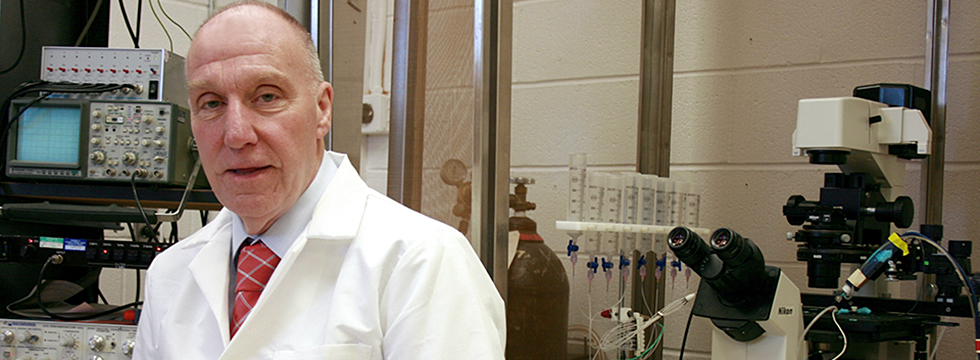
Decades in the Making
Since the dawn of man, parasites have been a scourge on the human race.
Dr. Richard Martin’s work with parasites has only spanned the past few decades of human time but his work has led to many important discoveries in this area that has global relevance for both human and animal health.
Martin’s lifetime work in this area was a major factor in his being named a Clarence Hartley Covault Distinguished Professor in Veterinary Medicine this year by Iowa State University. He has been a professor of biomedical sciences in the college since 1999.
“King Tut was felled by parasites and we see parasites in remains of the Vikings,” Martin said. “They were part of the human condition and still today parasites are very common in domestic animals as well as humans in the developing world where they don’t have proper sanitation.”
Martin’s research primarily focuses on roundworm parasites. More than 2 billion people in the world’s poorest nations and most domestic animals are infected with nematode parasites which ultimately degrade health, affect animal production and increase poverty.
By using advanced electrophysiological, pharmacological, molecular and parasitology techniques, Martin has discovered and studied the mechanism of action of new drugs used to paralyze and treat roundworm parasites.
“In the absence of adequate sanitation and vaccination, these drugs are used for the control and prevention of both human and animal parasites,” he said. “The economic returns for anthelmintic drugs favor development for animal health in western countries initially, and subsequent application for human health in developing countries.”
One of the drugs Martin has studied is Ivermectin which has proven effect against many types of parasites. It is used in humans for prevention and treatment of “river blindness” and elephantiasis in Africa and isolated areas of Central and South Africa. Scientists credited with the initial discovery were awarded the 2015 Nobel Prize in Physiology or Medicine.
Martin says he was influenced in his educational studies by a variety of teachers but one in particular suggested he study veterinary pharmacology.
“I found the subject magical,” he said. “You can cure a disease by finding a magic bullet. These are modern miracles, these drugs. Pharmacology has an aspect of magic that other disciplines don’t.”
“I still love the excitement of seeing new results,” he continued. “Something you discover that you didn’t know about previously, going to new places with your research and explaining things to people who want to know about the subject.”
September 2016
